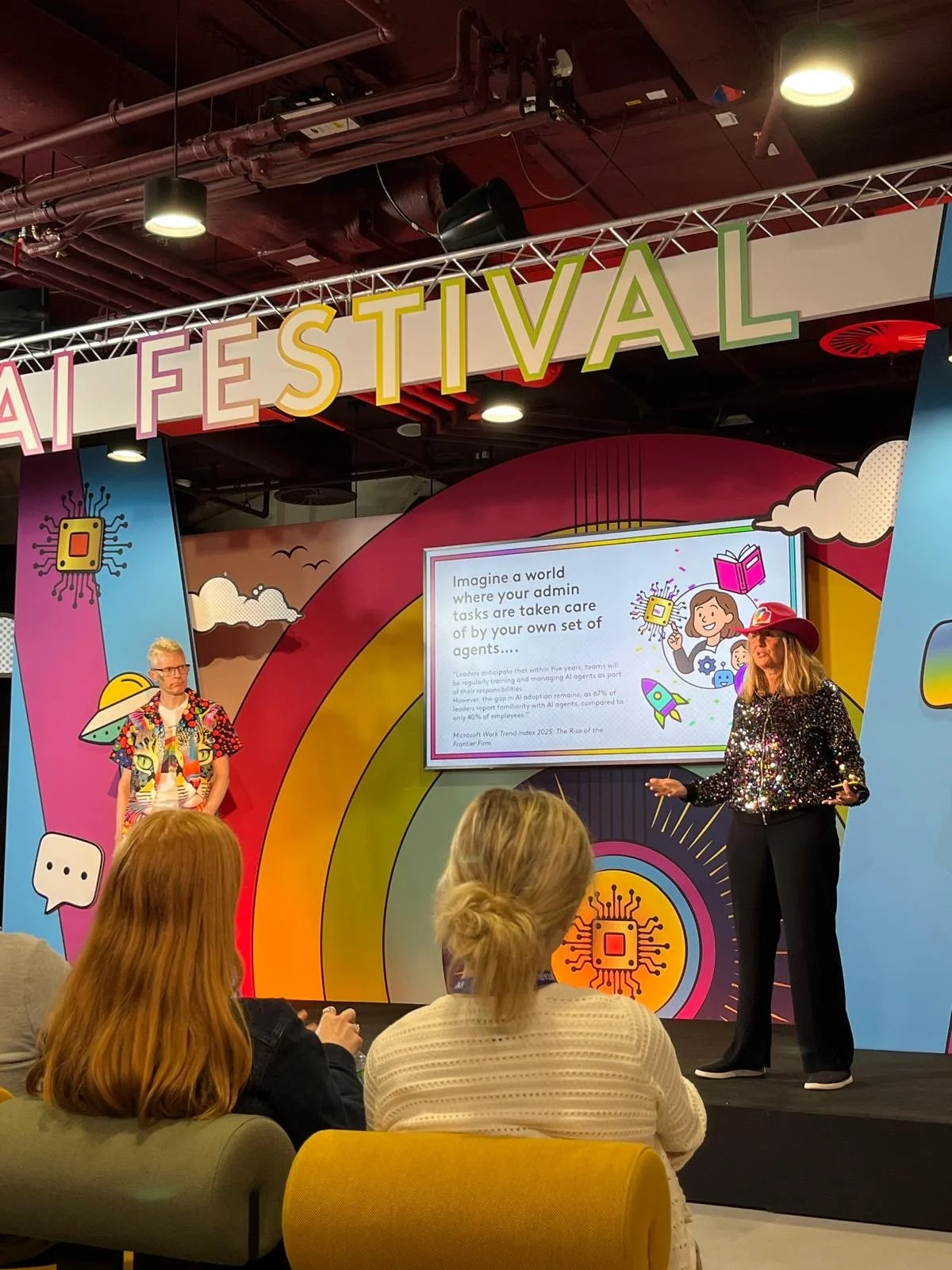Mindset is the New Skillset: Lessons from our AI Festival
AI Festival September 2025
For anyone who knows me well, they’ll say ‘I love a party’ and that includes a festival, and I’ll go ALL IN!
So when our brilliant internal comms leader decided to do an AI Festival I was super excited!
It was a big moment for us — 15,000 colleagues united across the globe, guest speakers from Oxford University, and our partners at Microsoft, as well as our leaders and colleagues, all sharing their vision for the future; And it wasn’t your typical corporate event either. With a dazzling stage, festive food, and even an after-party with music, the whole thing felt more Glastonbury than conference.
I threw myself into the spirit — with sparkles, feather boas, and cowboy hats If we’re going to embrace a new era, you gotta go all in!? Right?!
But behind the fun, something important happened. The Festival created a shared energy and sense of possibility. And for me, the most exciting part was seeing a shift I’ve been hoping for: people realising that thriving in an AI-driven world isn’t about knowing the tech inside-out. It’s about adopting a new mindset.
Mindset is the New Skillset
We don’t all need to become coders or data scientists. What we do need is curiosity, openness, and a willingness to experiment. The organisations that thrive will be the ones where AI isn’t treated as a bolt-on, but simply the way we do things.
That means developing an “AI-first” habit: before I dive into a blank PowerPoint slide or trawl through research, I ask Copilot to get me started. It doesn’t replace my thinking, but it gives me a head start — freeing me up to spend my energy where it really matters.
Beat the Bots
One of my favourite takeaways came from Alex Connock, who reminded us that AI can already churn out infinite, decent content. If we’re going to stand out, we need to beat the bots by upping our game in the very areas where humans excel.
For me, that means using my leadership and commercial expertise to delight clients, inspire teams, and help colleagues solve complex challenges. AI can get us to “good.” It’s our job to take things to “brilliant.”
The real gift of AI is time. And the question is: how will we use the time it gives back to us?
Leaders Don’t Need the Answers, They Need Better Questions
As leaders, our role isn’t to know everything about AI. It’s to model the behaviour: show that we’re willing to experiment, fail, and learn. Our value isn’t in replacing the machine, but in asking smarter questions of both our teams and the tech.
That means leading with curiosity, not certainty.
“That all sounds great Jo but what advice would you give to others wanting to embrace a new AI first mindset?”
Here’s some practical tips to get started
The Festival reminded me that becoming AI-native isn’t about waiting for a training course or a corporate mandate. It’s about simple daily habits that, much like dancing at the after-party, anyone can join in on:
Go AI-first: before you start a task, ask “could AI help me draft, explore, or accelerate this?”
Build micro-habits: experiment with AI for five minutes a day — small, consistent steps matter more than a big one-off effort.
Blend, don’t bolt on: the magic is in combining AI’s speed with your intuition, empathy, and creativity.
Share the wins: talk openly with colleagues about how AI helped you — adoption spreads faster when it’s cultural, not individual.
Focus on mindset, not mastery: curiosity is more important than competence right now.
Final Thought
The AI Festival was proof that learning can be fun, bold, and even a little sparkly. But the message underneath all the glitter was clear: we don’t need to become AI experts. We need to become AI natives — seamlessly blending human and machine to create something better than either could alone.
And that starts not with learning new tech, but with shifting how we think, lead, and work every single day.

